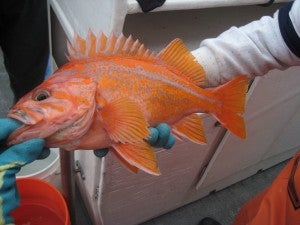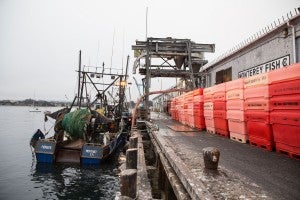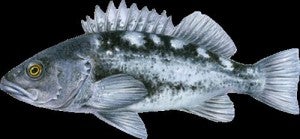Since launching in 2008, the California Fisheries Fund (CFF) has made 30 low-interest loans—ranging from $50,000 to $350,000 — providing fishermen and sustainable fishing businesses with the capital needed to upgrade boats, purchase equipment and improve their business operations.
Our recent loan to the Monterey Bay Fisheries Trust—a new community-led non-profit dedicated to securing groundfish fishing rights in the Monterey Bay region—provided the organization with vital seed money to enable its establishment.
“Our loan from the CFF has been critical to our organization’s early development” said Sherry Flumerfelt, Executive Director, Monterey Bay Fisheries Trust. “With the quota we were able to buy; we can lease to local fishermen, generate lease revenues and build on the success of sustainable fisheries management.”
With its new CFF loan, the Monterey Bay Fisheries Trust will be better equipped to serve a community of local, family-owned fishing businesses; ease the burden on new entrants– making it easier for new fishermen to lease quota with flexible terms; and support a personalized, one-stop-shop leasing system that provides quick and improved services for fishermen.
The Monterey Bay Fisheries Trust acquired more than $1 million in commercial groundfish quota from The Nature Conservancy. This transaction coupled with the CFF loan and The Monterey City Council’s pledge to use $225,000 from the city’s Tidelands Trust Fund to acquire fishing rights to be managed by the Monterey Bay Fisheries Trust–will allow hundreds of thousands of pounds of groundfish to be caught under a sustainable fishery management program.
In 2011, this program, “catch shares,” went into effect for more than 60 species of West Coast groundfish (e.g., sole, rockfish) and has achieved significant conservation goals. The new program has generated impressive conservation results:
- In 2014, the Monterey Bay Aquarium Seafood Watch program moved 21 species of West Coast fish to sustainable status
- The Marine Stewardship Council certified the fishery sustainable, emphasizing the important role that the catch share program played in recovering the fishery.
The Monterey Bay Fisheries Trust enhances the West Coast program, maintaining historic fishing access in Monterey Bay and supporting the communities that rely on it (Moss Landing, Monterey and Santa Cruz). CFF is fortunate to support the Monterey Bay fishing community and advance the vision of the Monterey Bay Fisheries Trust, securing the profitability and sustainability of Monterey Bay for many generations to come.
To learn more about CFF’s loan to the Monterey Bay Fisheries Trust, listen to my radio interview.













